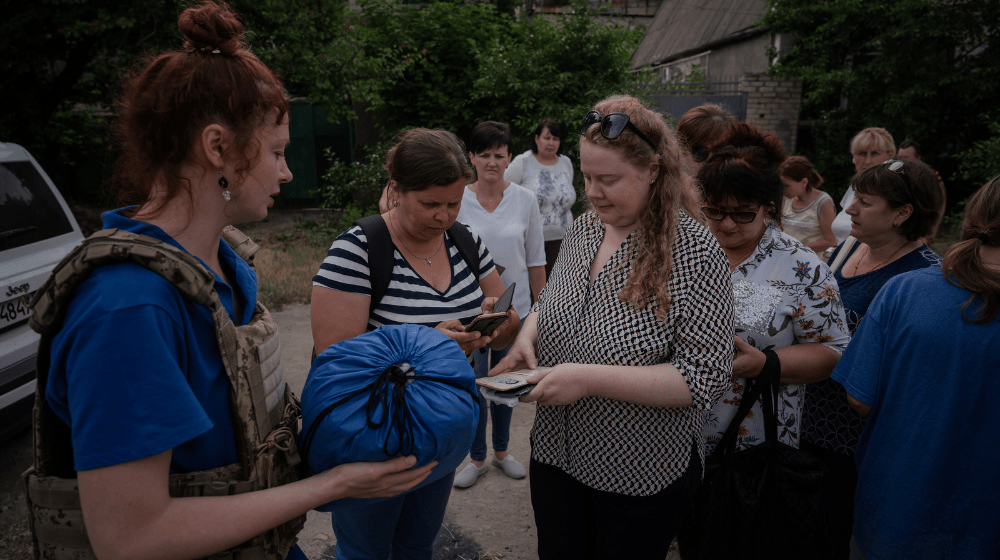As a result of the destruction of the Kakhovka Dam on June 6, tons of water moved towards the city of Kherson and the settlements around the Kherson and Mykolaiv regions. Employees of the mobile Survivor Relief Center (SRC), which provides comprehensive psychosocial support to survivors of war, started helping in the city from the first day: evacuating survivors, placing them in shelters, providing first psychological aid, and delivering humanitarian aid, including to women, girls, and the elderly.
“June 6 began for me at 7 a.m., when a friend of mine called me in a very anxious state and asked me to help her find housing for her relatives who were living in the lowest area of our city, the island that is currently the most flooded,” remembers Iryna, SRC coordinator in Kherson. “When she told me that the Dam had been blown up, I could not believe it. All Kherson residents have known since childhood how scary [the prospect] is. We used to have lessons at school where we were told how much Kherson would flood if the dam was destroyed. When it happened, it was such a shock, I can't find a proper word, because the term "horror" is not enough. This is a global grief, a global catastrophe”.
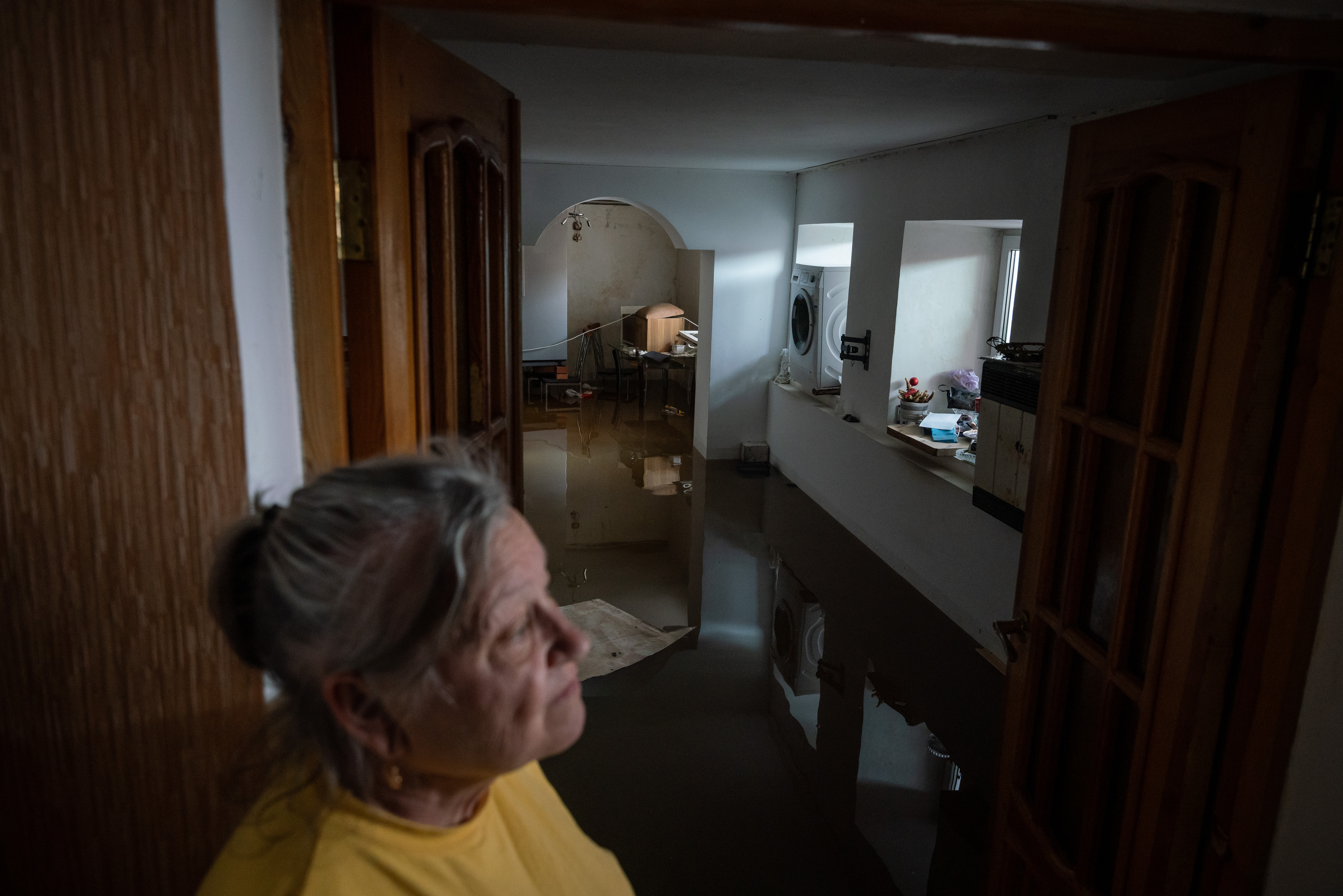
An elderly woman in her flooded house in Kherson / UNFPA, Danylo Pavlov
A Survivor Relief Centre (SRC) is an institution where people affected by war can receive comprehensive, safe and free social and psychological assistance. They exist in 11 cities of Ukraine and were established on the initiative of the Office of the Vice Prime Minister for European and Euro-Atlantic Integration, with the assistance of the Government Commissioner for Gender Policy, and support from UNFPA, the United Nations Population Fund, local authorities and NGOs.
Since its launch in December 2022, the SRC in Kherson has been operating in a mobile format. Kherson was occupied for 9 months and during that time the city was plundered and destroyed. Therefore there are not enough premises for social services and so SRC operates from its vehicle.
The SRC team consists of a driver Andrii, a psychologist Iryna and a social worker Anna. Before the Dam destruction, its specialists held meetings with advocacy partners, and visited villages to raise awareness about gender-based violence and conflict-related sexual violence, and provided information about available services.
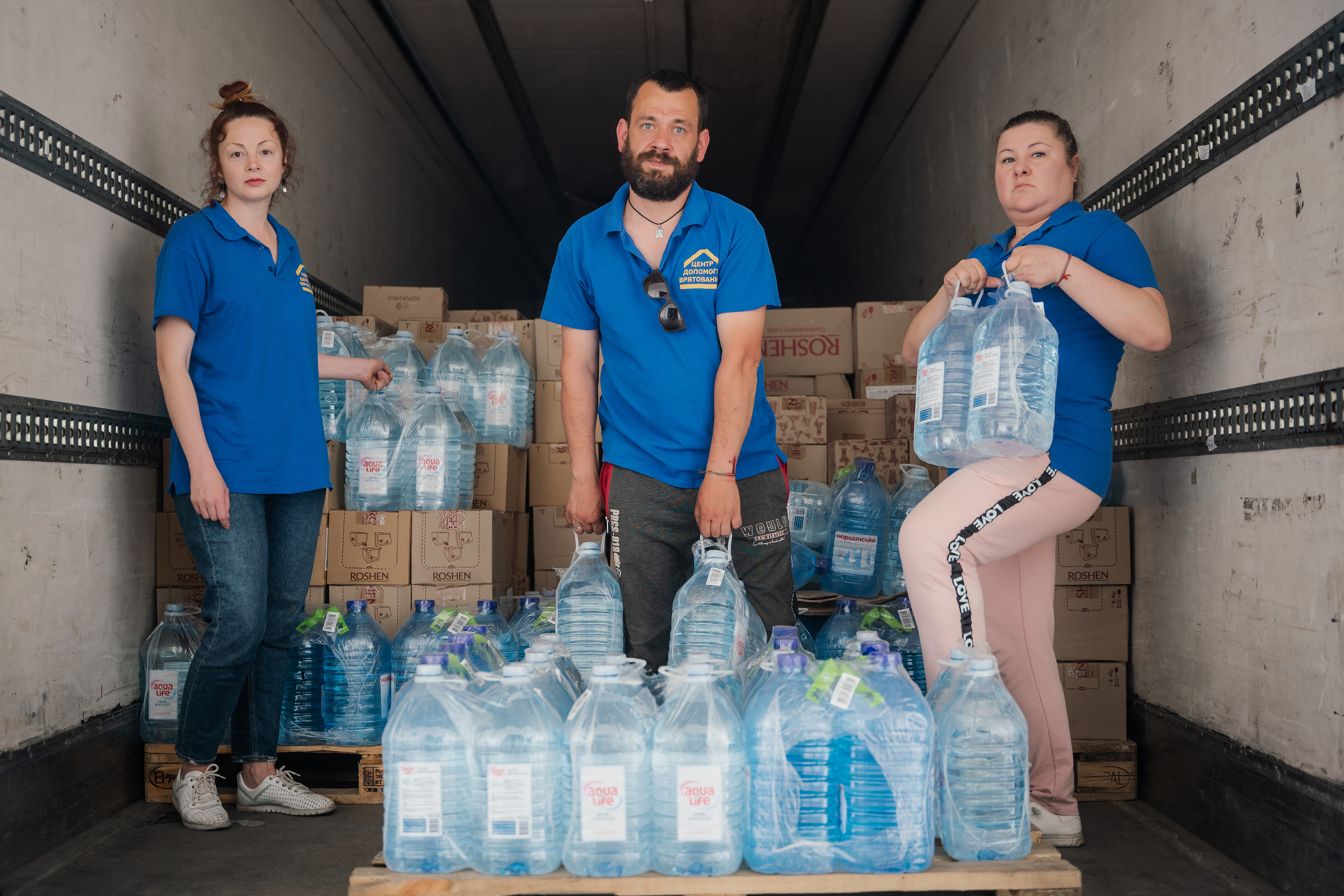
The SRC team consists of a psychologist Iryna (left), a driver Andrii (centre), and a social worker Anna (right) / UNFPA, Danylo Pavlov
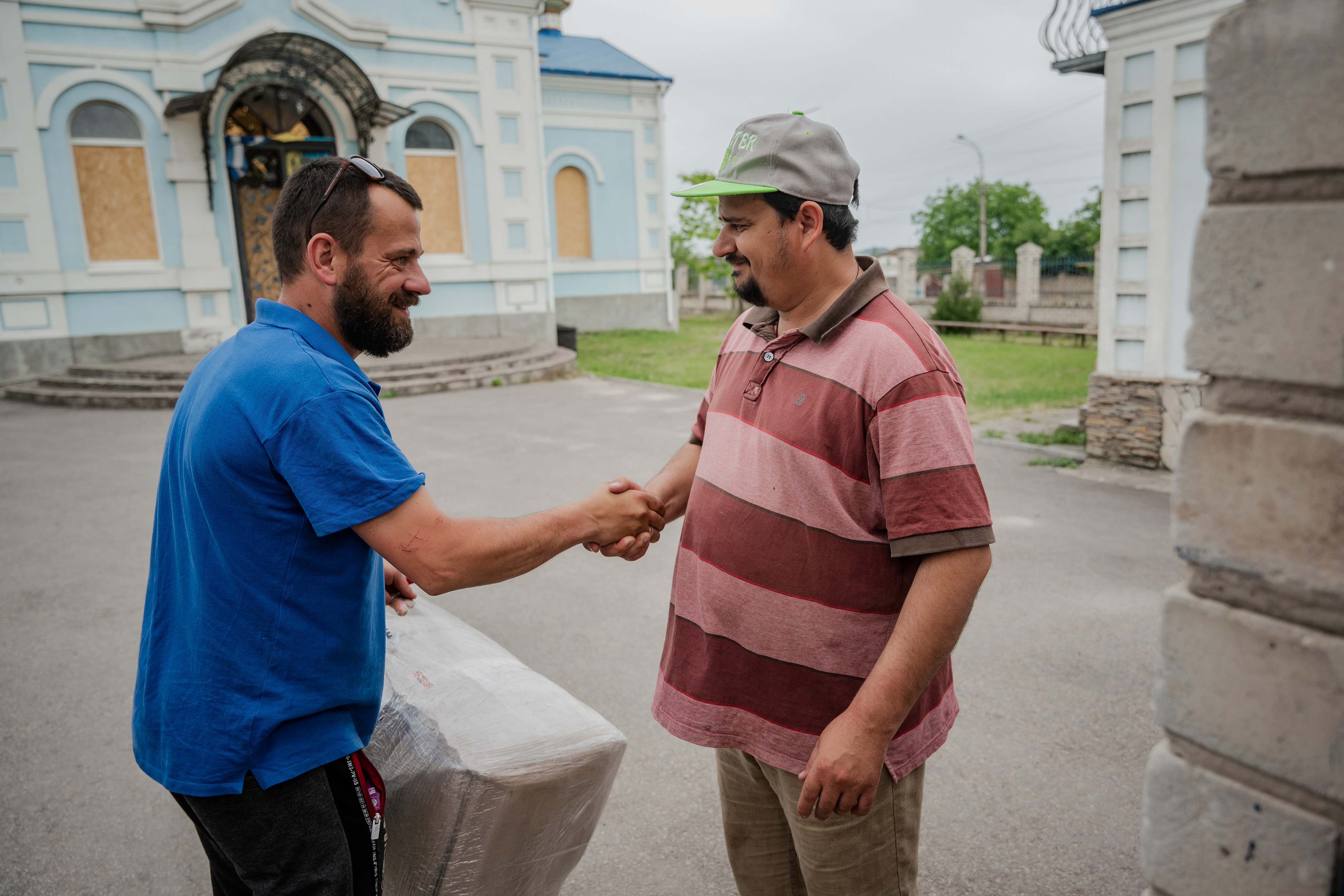
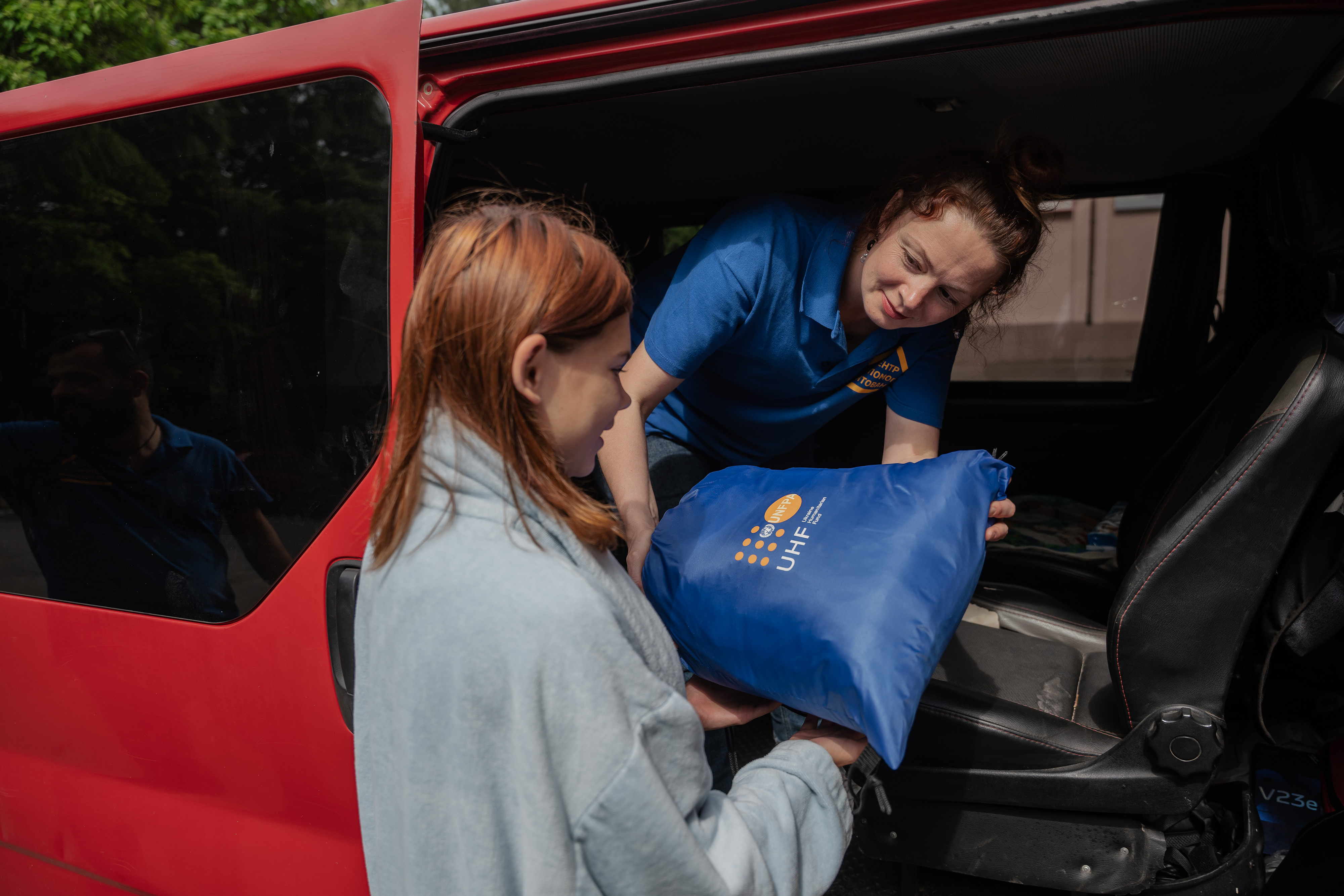
Survivor Relief Center Staff provide humanitarian aid for survivors / UNFPA, Danylo Pavlov
“There were also many online counseling sessions for women who had requests related to sexual violence and who lived either in the region or had left,” Iryna recalls. “Also, together with our partners, we provided counseling services for their clients, including with the psychologist from UNFPA’s women and girl-friendly space “Vilna” women with children often came to us with questions about how to calm and reassure their children”.
The destruction of the Kakhovka Dam has caused a large-scale humanitarian disaster in Kherson and the region, so the priority task for service providers was simply to save people. SRC driver Andrii voluntarily evacuated people using the car at first, but on the second day of the disaster he already had to use a boat, taking people off the roofs, untethering animals, and rescuing anyone he could find.
“We received the coordinates for evacuating people from the State Emergency Service, they sent us to the addresses,” Andrii recalls. “So one day we took one address and left. We were looking for a location for a long time, because that address was heavily flooded up to the roof. It turned out that the goats and the woman were sitting on the roof. We found them and took the woman away. There was a very strong current, but we overcame it all and rescued her, along with her goats and two dogs. The three of us worked together. One coordinator was on the shore and two of us were in the boat”.
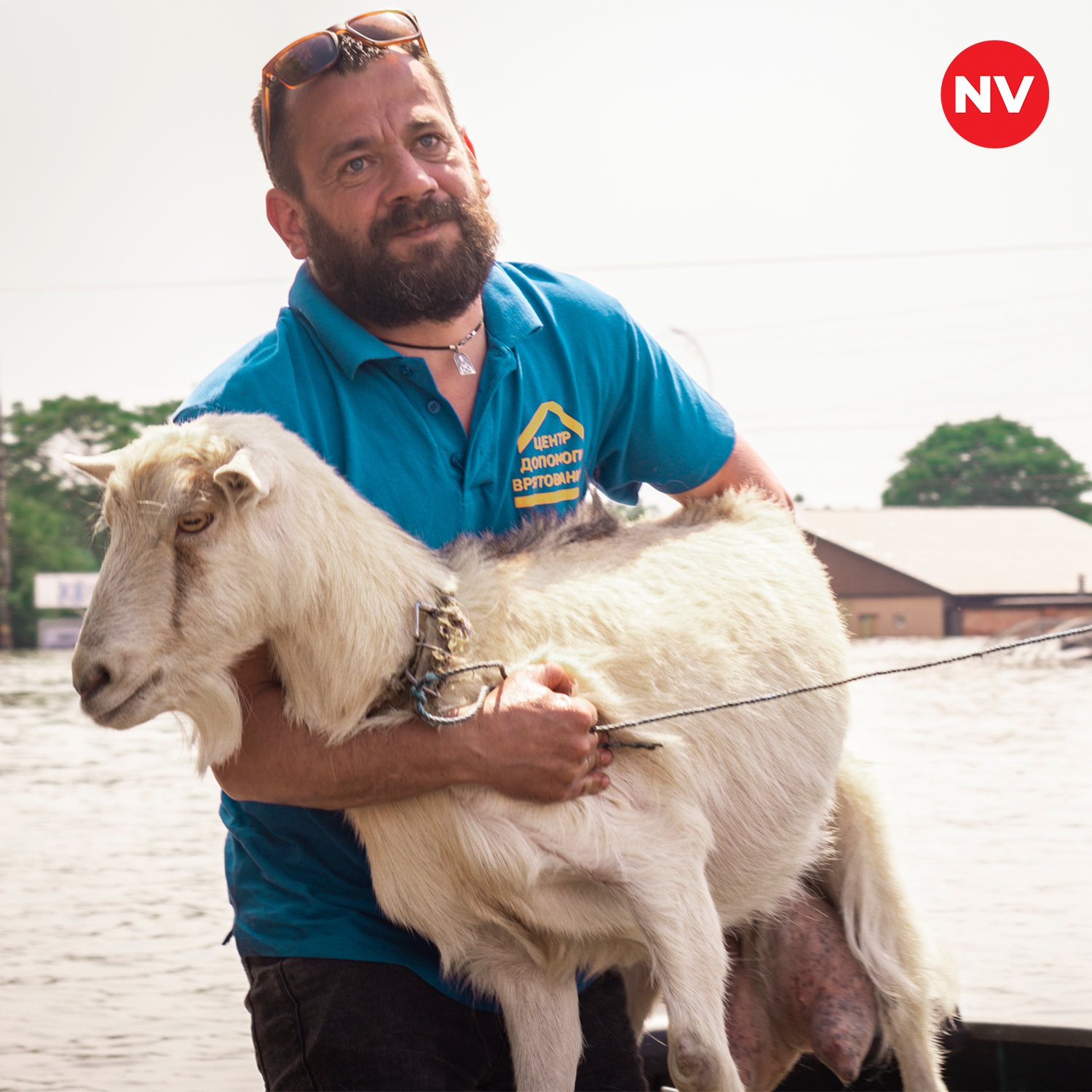
“It turned out that the goats and the woman were locked in, sitting on the roof. We found them, rescued her, along with her goats and two dogs.” / Photo: NV, Serhiy Okuniev
Anna, a social worker, helped military administration at the warehouse to receive humanitarian aid that was brought from all over Ukraine and distribute it to shelters. In addition, there were many people who might have soaked or lost their documents while sailing, so SRC specialists also dealt with this issue.
Iryna coordinated the Center and also provided psychological assistance to evacuees in shelters, and worked with children who were disoriented, and calmed down elderly people who were terrified and petrified. She was also contacted by people who wanted to help and coordinated them, raised funds. Their work all this time was hindered by heavy shelling.
“One man who we evacuated was collecting money for a surgery. During evacuation he saved his documents, but he could not take the money. We started fundraising and spread the word about his situation,” one of the many stories Iryna shares.
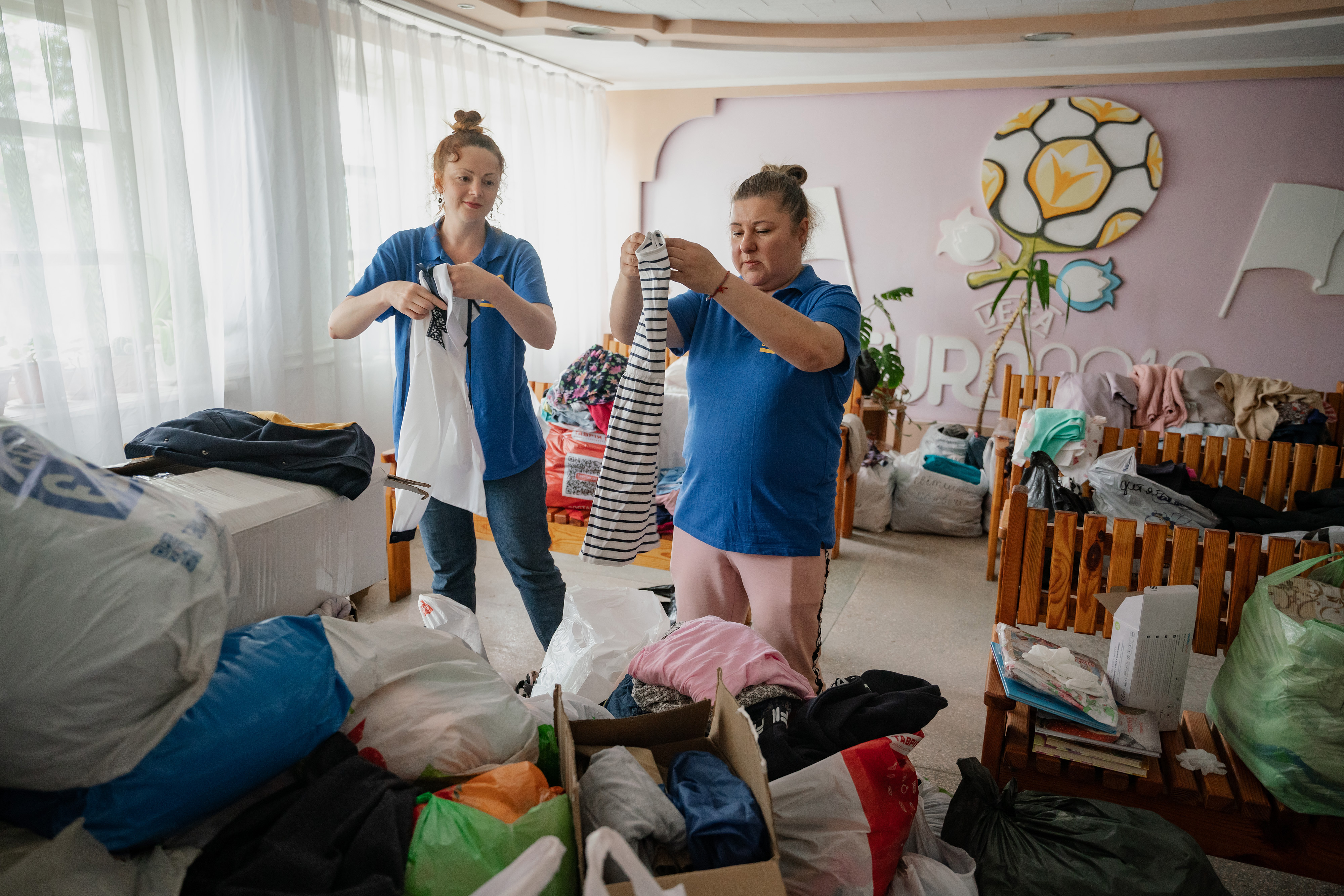
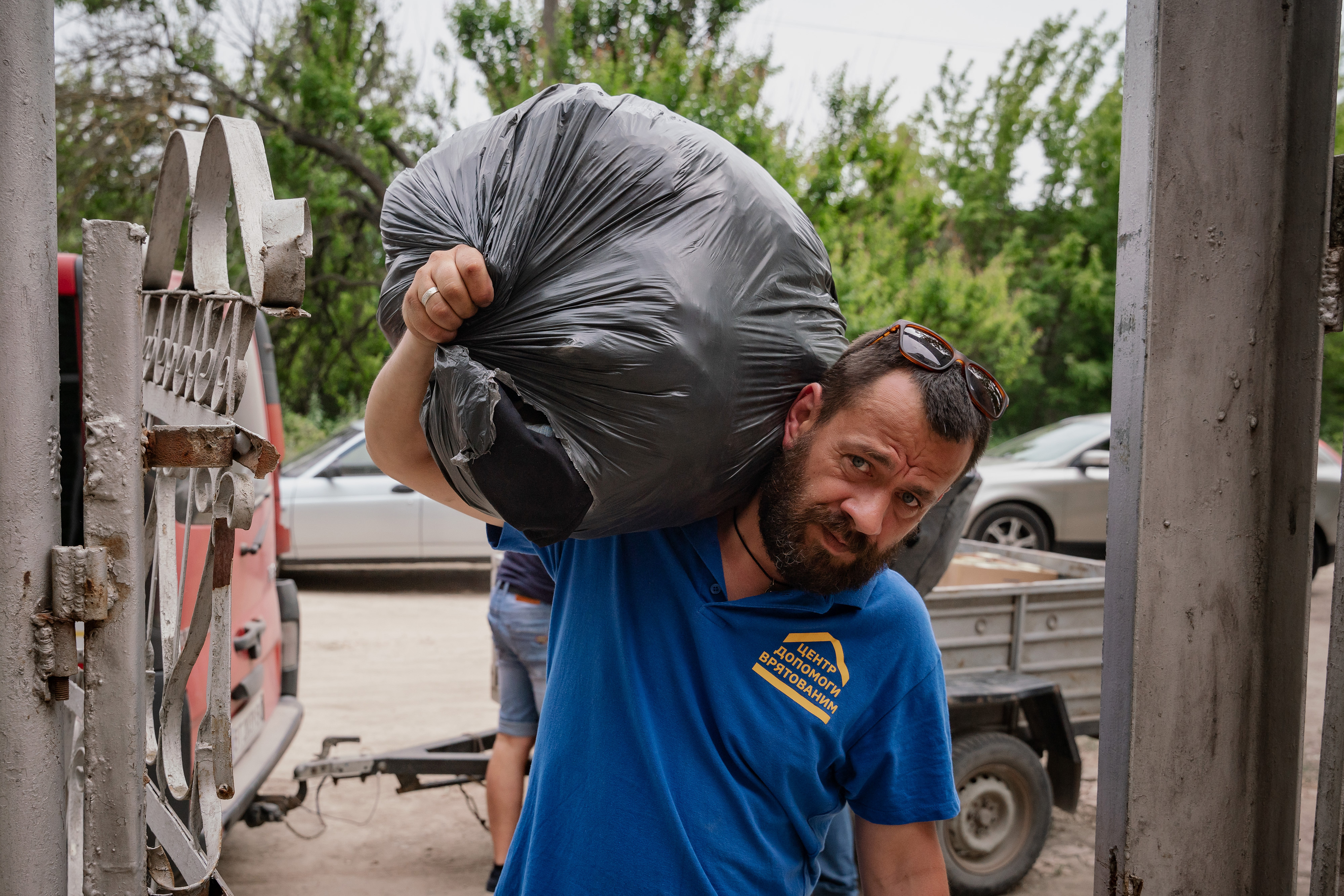
Survivor Relief Center Staff provide humanitarian aid for survivors / UNFPA, Danylo Pavlov
Not everyone is eager to leave their homes, however. SRC staff share how often they have to convince people to evacuate. The reasons vary, but not wanting to leave behind pets is one of the main ones. As shelters don’t allow people with animals to stay there, citizens choose to risk their lives rather than leave without them.
“The story that struck me to the core was when we went by car on the first day to evacuate a man because the water was already 10 meters away from his house”, Iryna recalls. “He was a person with disabilities, he had difficulty moving around and had problems with speech. He did not want to leave without his dog, a 10-year-old shepherd. He was ready to stay with it, but it was very risky because his house would have been flooded to the roof by the evening. But he wanted to stay with his dog at the cost of his life, because shelters don't allow pets, and he had nowhere else to go. So we started asking around to see who could take him in. We found a house in a safer area of our city where we were able to move him and his dog. I see how much people love their animals, and if it is believed that a dog is loyal to its owner, then during this week I saw how there are people who are loyal and responsible to their animals who depend on them”.
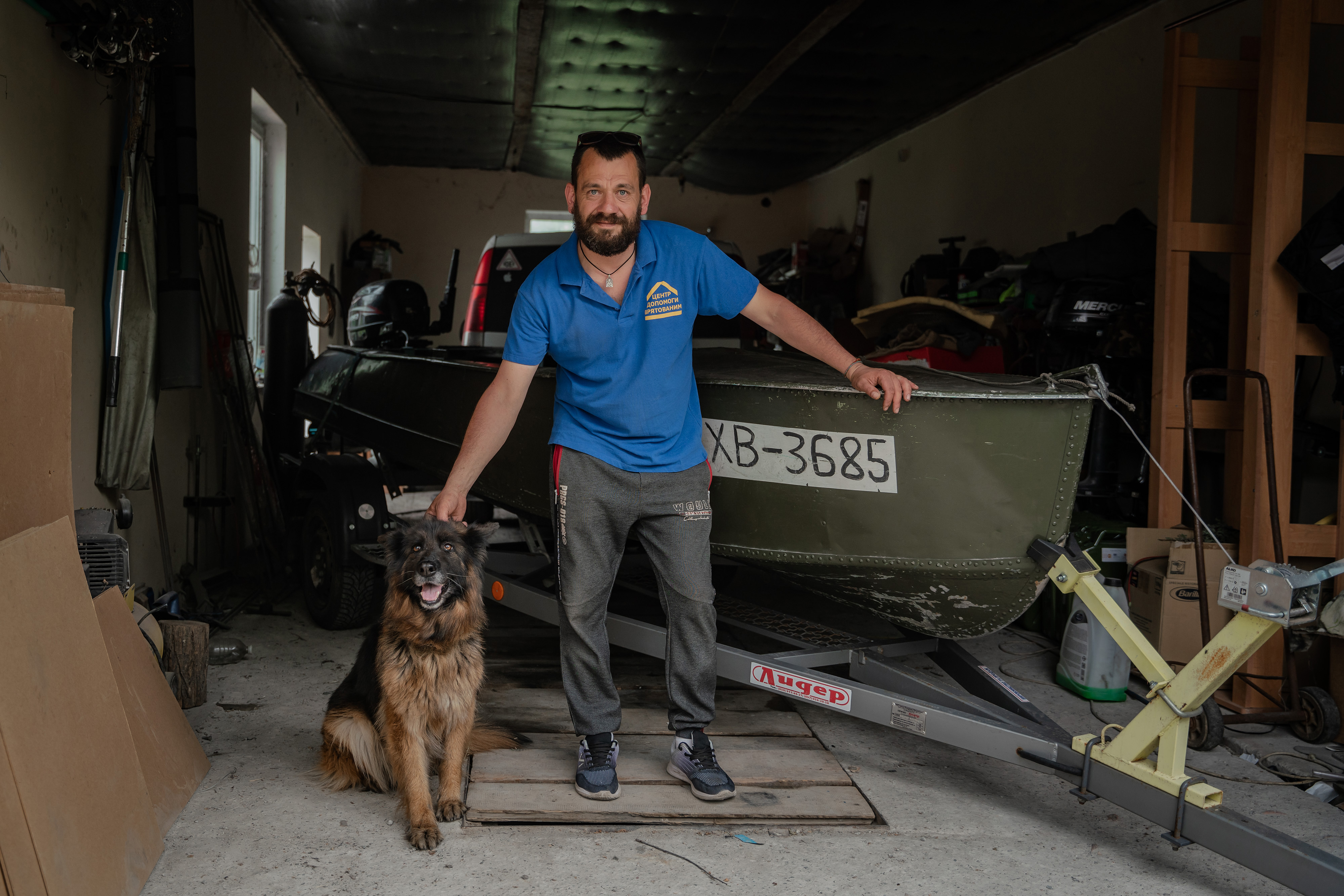
“I see how much people love their animals” / UNFPA, Danylo Pavlov
At the same time, UNFPA, together with other UN agencies, including OCHA, UNHCR, WFP, UNICEF and IOM, sent several convoys of humanitarian aid. UNFPA has provided 608 sanitation kits targeting the elderly and women and girls, the affected population. They include underwear of different sizes, thermal socks, urological and menstrual pads, hygiene products (soap, shampoo, toothpaste and brush, deodorant, etc.), warm blankets and flashlights.
“I am very grateful for the quick response from our partners, the high-quality logistics, the quick delivery of the sanitation kits we needed and their sufficient quantity,” says Iryna. “I can distribute them to people who need them. Many thanks to the United Nations Population Fund and the people who responded. The aid is going to Kherson, it supports and helps us to continue doing our work”.
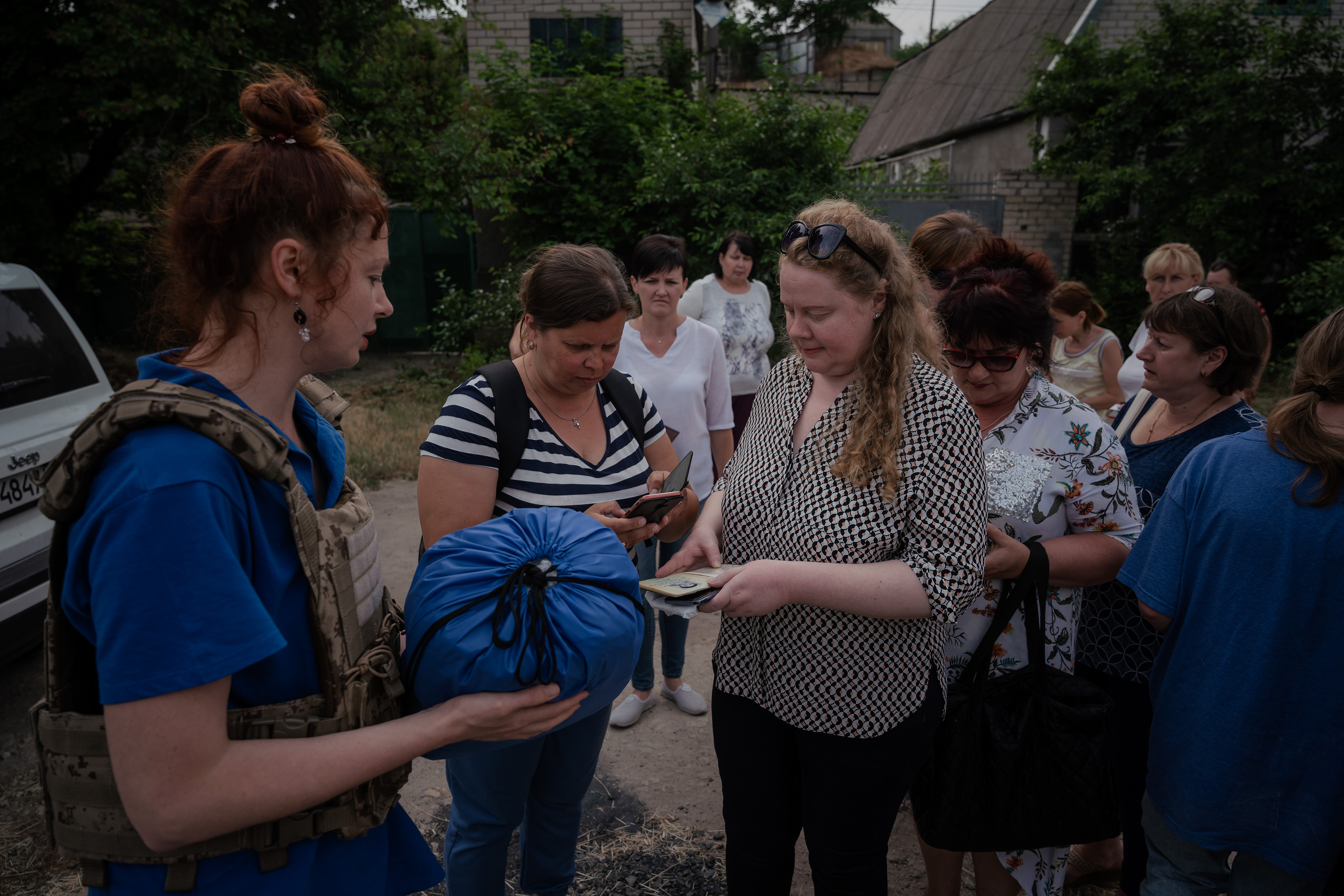
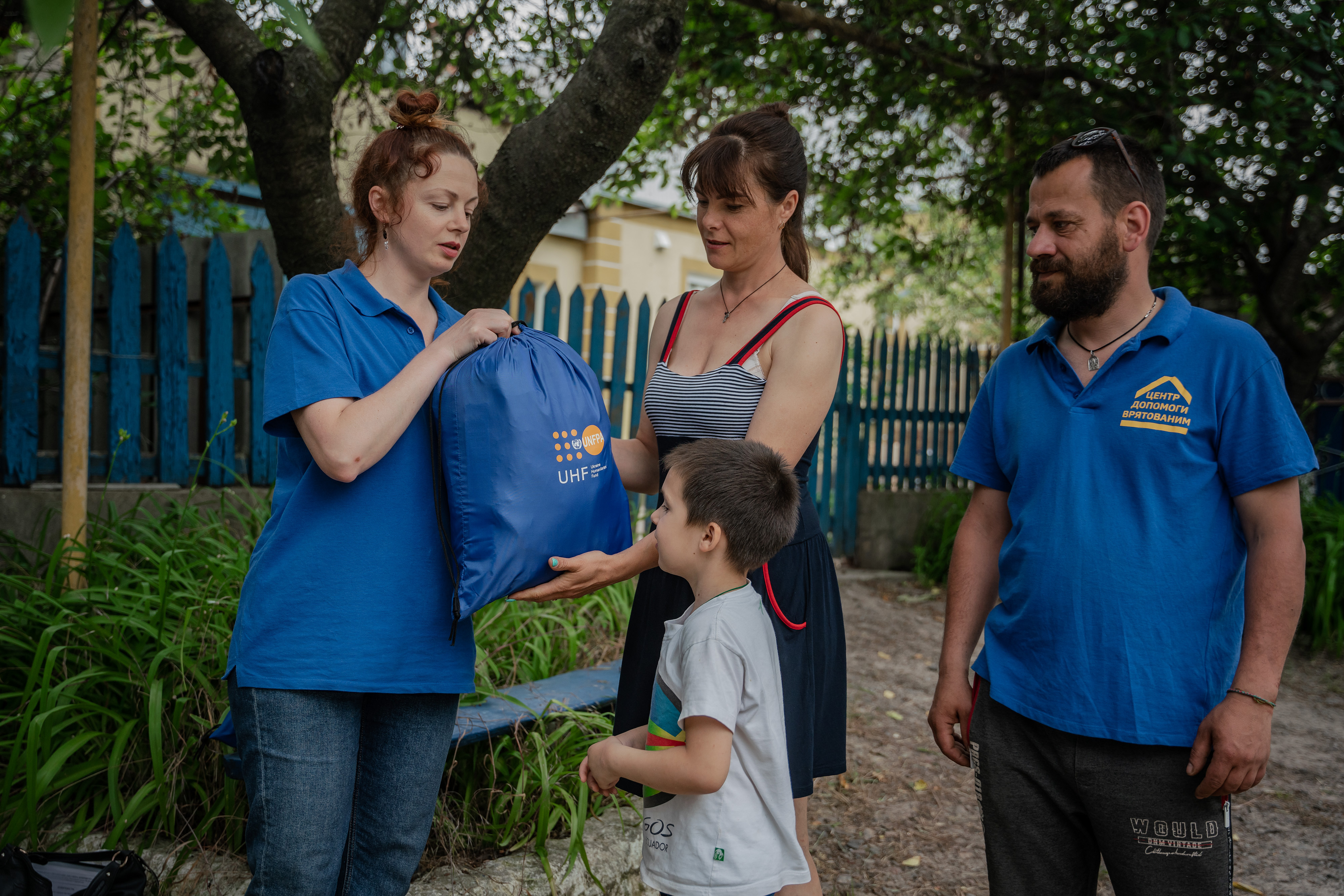
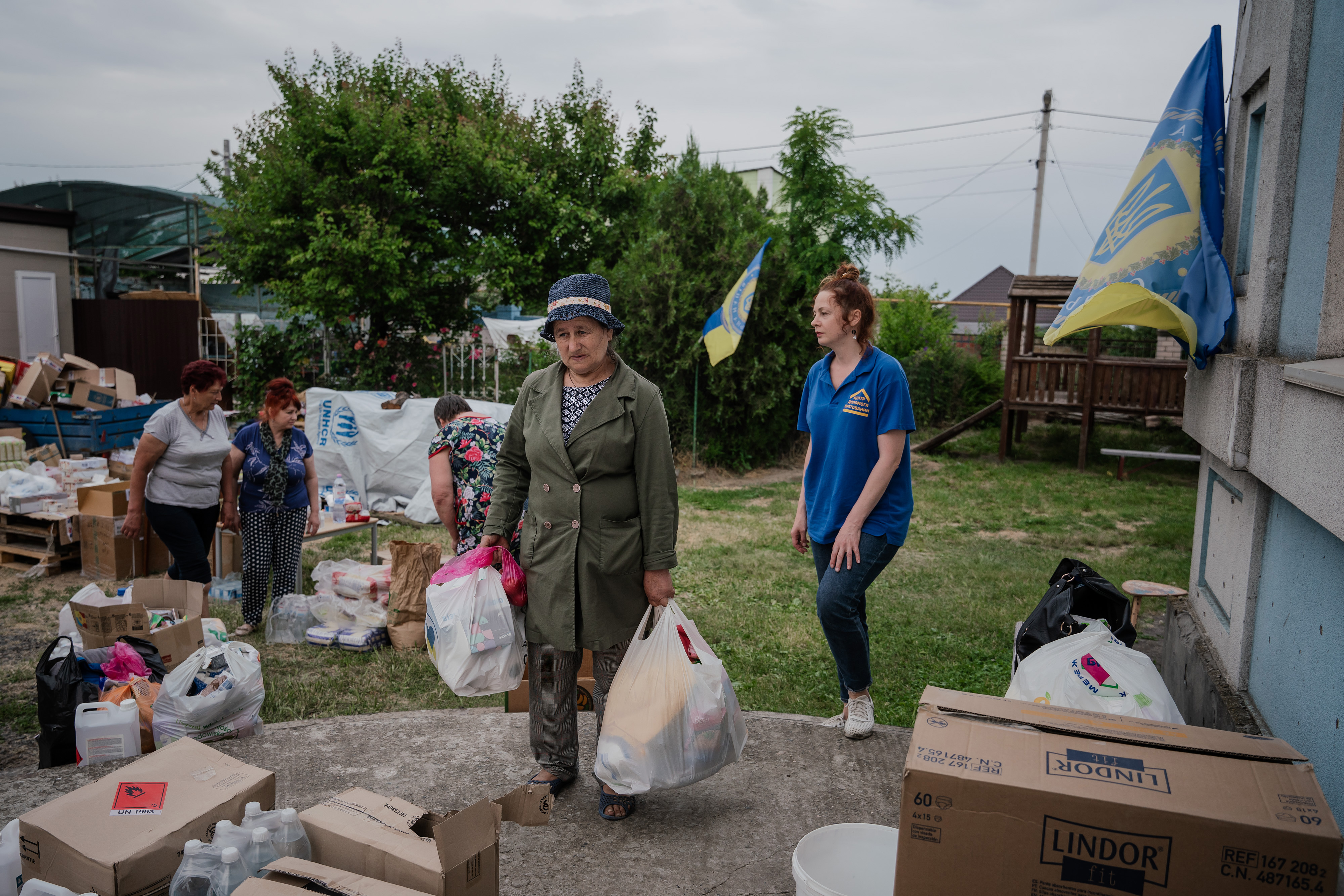
Survivor Relief Center Staff provide humanitarian aid for survivors / UNFPA, Danylo Pavlov
SRC staff wake up every morning at 6 am and go to sleep at 1-2 am. Sometimes due to heavy shelling they had to spend time in the basement, which also means they have poor quality of sleep. After that it is very hard to restore one’s mental wellbeing, as Iryna shared. But Iryna, Andrii and Anna do not stop for a moment, providing constant help. They also monitor women of reproductive age to make sure they feel well and have gynecologists on hand to refer them to the hospital.
“What survivors need most of all is to be transported to a warm dry place, to a warm dry bed, with a blanket, and given hot tea. They need to be cared for,” Iryna shares. “Whoever they were, men or women, when they receive sympathy, care, and hot lunches, they begin to "thaw". When people receive blankets, dry clothes, hygiene products, they feel they are not alone with their grief, that they aresupported by thousands of people, that they are not left alone. It is very difficult and painful for them, but seeing help, they have a sense of strength that they could cope with it.”
For Iryna, the biggest fear is to think about what will happen when the flood waters come down. Wherever there was water, there is now muddy dirt and piles of garbage. Houses built of stone are soaked with water, and water is still in the basements. There will be mold, fungus and a lot of destroyed property.
“I'm worried because when the water goes down, there may be corpses of animals and people on the surface,” Iryna says. “I am afraid that various epidemics will start, it is my biggest fear.” A large number of houses are left without drinking water in our Kherson summer heat of 40-50 degrees. There was information that cemeteries were washed away, and in our heat it will cause a terrible process. We currently do not have the specialists who could cope with this challenge. We don't even have garbage collection because we don't have enough people. Our city has been looted, there is little equipment and people”.
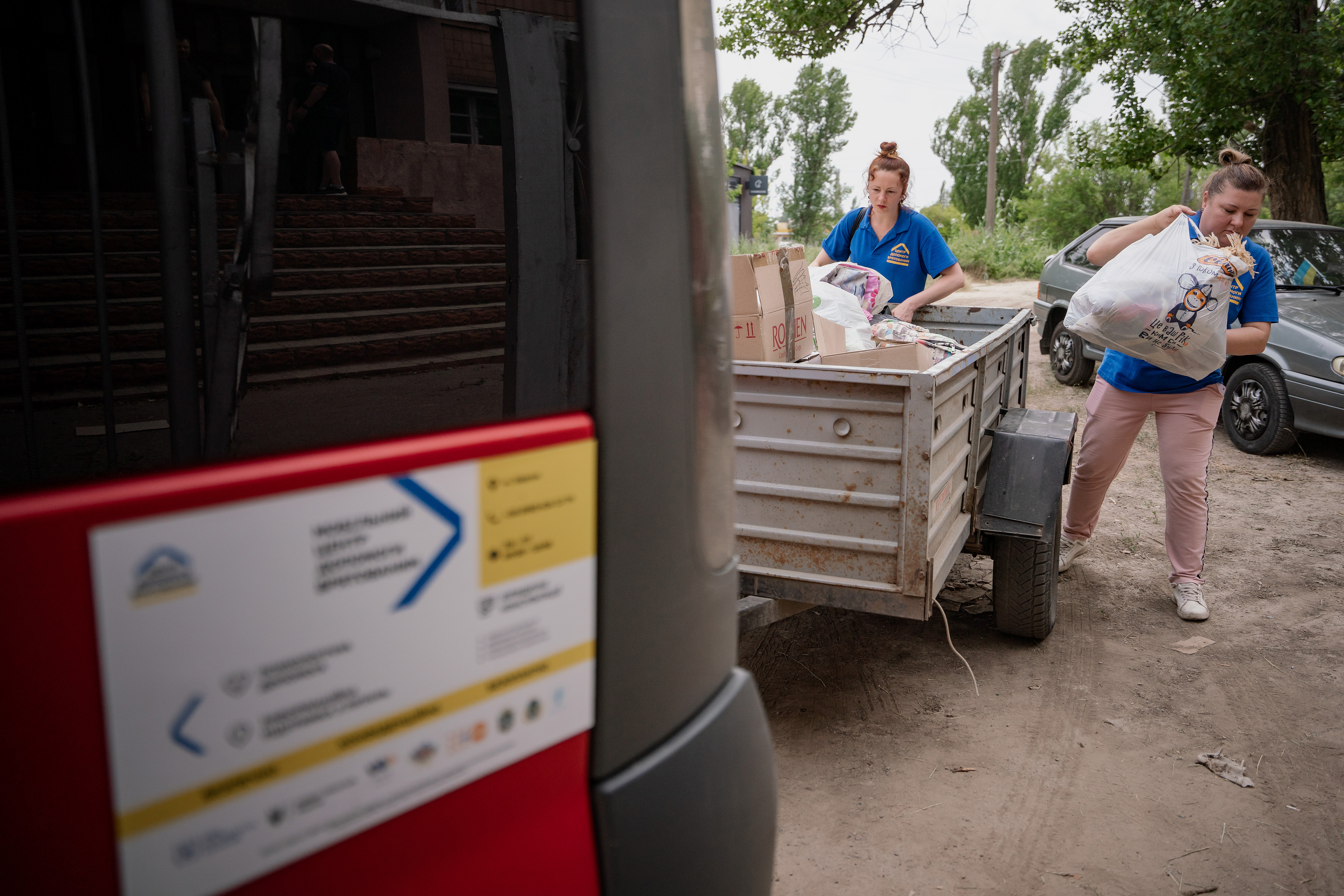
Співробітники Центру допомоги врятованим надають гуманітарну допомогу постраждалим / UNFPA, Данило Павлов
Iryna is a resident of Kherson and since the full-scale invasion she has stayed in the city. Lots of her friends and relatives left the city. Some friends and places she loved remain on the left bank of the city which is still under temporary occupation and now flooded. While the right bank is 16 meters higher than the left bank and this disaster still affected it, the left bank simply disappeared. “This tragedy scares me because, despite the fact that we live in a progressive time, we talk about tolerance, respect, values, there are still people who are ready to wipe entire cities off the face of the earth,” she says.
“I've lived through the occupation, the liberation, the endless shelling and the destroyed dam. I will say one thing: I love life more than ever, I really, really want to live, I really love what I have,” says Iryna.
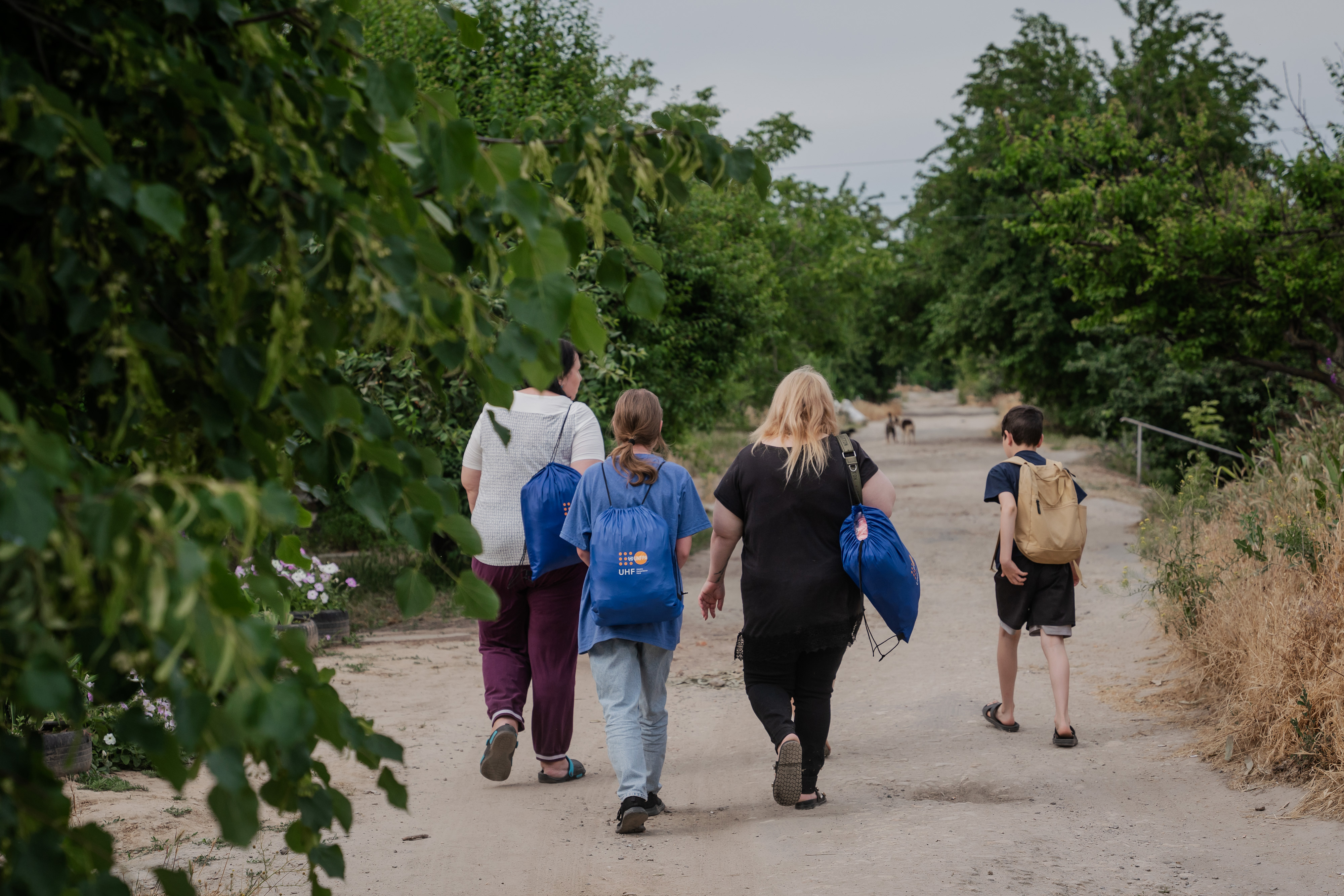
The Survivor Relief Center in Kherson operates on the initiative of the Office of the Vice Prime Minister for European and Euro-Atlantic Integration, with the assistance of the Government Commissioner for Gender Policy, support from UNFPA, the United Nations Population Fund, local authorities and through the executive partner “Initiative”.
This is a translation and a reprint from media NV.
Editor: Karina Pasichnyk

